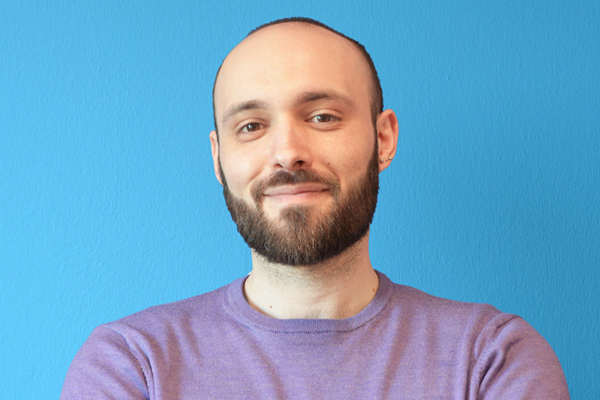Stand for an old new web

Some years ago I was having fun playing with a previous version of this website, using JavaScript for create a constellation of dots that started collapsing and then creating a spinning world at the page load. Cool and extreeeemely slow thanks to my Master's in DIY JavaScript.
I remember that I thought: "Despite all the fun I had doing it, do I need all this stuff on this website?".
It's amazing to surf fancy websites, but I was already feeling more interested in content than boxes.
Even if no one will ever visit this website, there is no reason to make it heavier than it needs.
Of course this simple thought easily applies to a small blog like this, but "needs" is a thin line that changes case by case.
The sustainable web
Surfing the web about the idea of improving my web development skill, I came across the sustainable web manifesto, a collections of intents that aims to developing a better web in terms of sustainability, first of all because
if the Internet was a country, it would be the 4th largest polluter
The web is an incredible place, a land of opportunity for all the people who want to learn and discover new things, maybe with too many cats.
But like a garden that needs to be tended to not become a forest, we should take care of our websites to make the web better, becoming aware that each small improvement helps. Our efforts towards environmental sustainability should not forget the internet. But how?
Back to this blog, I decided to start focusing on the weights of the resources loaded at the pageview, and these are the main actions I took:
- optimize images and serve them as webp
- limit the JavaScript libraries
- serve the web as a static page, lowering the number of connections to DBS
- use system fonts instead of external ones
- minify the CSS
- use brotli compression (thanks to Cloudflare)
- load images with native lazy load techniques
- last, but not least, use Pelican to build the entire website as a static one.
The energy that powers the hosting providers is another point to focus on. After many searches, I decided to switch to Cloudflare Pages which, in collaboration with the Green Web Foundation, aims to provide green hosting even in the free tier.
Of course, this is just a simple blog, more complex websites could have more problems at reducing their carbon footprint, but becoming aware of the problems is a good start for me.
Sometimes, instead, I think that I should close this space because I don't know how much contribution it gives to any cause in the vast sea of the internet.
Closing this website could mean:
- less HTTP requests from bots and crawlers
- less memory usage from a remote server
in general, less energy consumed, and a zero carbon footprint.
So why spend time, effort and money building a personal website lost in the digital ocean?
The IndieWeb
I have active accounts in the main social network, but I don't use them anymore to post, is more for having a presence there than using them.
Big companies offer the possibility to create and share content, but they also decide the way your content gets visibility and interactions, also they own your content. It's a system built for advertising.
Let me be clear, mine is not a crusade against Google or Meta or their businesses model, I think that advertising helped and still helps maintain free services that could be a game changer for small and personal business. Furthermore, I am a digital analyst, I use tools for web analytics, digital advertising and so on at work, and I love my job.
Of course is not possible to cover the subject with just a few lines, but I strongly think that this is not a war, it is more about choice and awareness.
Sometimes the content we share is not a precious one, let's say
, but is still part of our digital life, and who knows how this content could be used in the future.
Creating a public digital identity hub is not a solution, but it's a way to make an official centralized output place of information about you, that you can control and that you own.
Following this path, I found the IndieWeb community that says about itself:
The IndieWeb is a community of independent & personal websites connected by simple standards, based on the principles of: owning your domain & using it as your primary identity, publishing on your site (optionally syndicating elsewhere), and owning your data.
Going deeper into their website, I found lots of useful information that I am still trying to assimilate, but even just the presence of such a community makes it easier to go inside the topic. The best place to start is their "Why" section where you can find links to other users' good content that, better than mine, covers the subject.
By now, having already a personal domain, I can say for sure that one point of the bullet list of the implementation is checked, but I have to work for the others.
Conclusion
I hope that someone will find useful information, or better a stimulus, in this post. For sure It has been helpful for me, giving me a hand at organising my thoughts.
I will need time to apply something new to this blog, especially the IndieWeb part, but I think that the whole process will be instructive.
I like the idea of a simpler and lighter usability of a website when it's possible; it should always be, but probably it depends on the complexity level of the digital product.
The only thing that I can work on is doing my best to make what I do simple and light enough to enable people to use it with low effort and low resources.
I don't know if how this blog is built is an old-but-new solution or a new-but-already-old one, but I think that this blog has already improved following what I mentioned in this blog post, and that's a good start for me.
There is not a comment section yet but get in touch with me if you like to share any thoughts. Thank you for reading.


